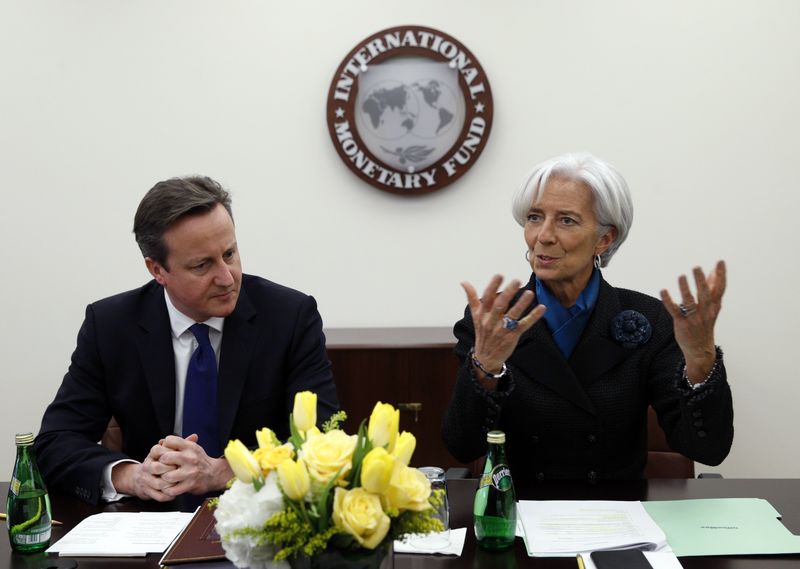By Jake Spring
BEIJING (Reuters) - The International Monetary Fund lowered its forecast for global economic growth in 2015, and called on Tuesday for governments and central banks to pursue accommodative monetary policies and structural reforms to support growth.
Global growth is projected at 3.5 percent for 2015 and 3.7 percent for 2016, the IMF said in its latest World Economic Outlook report, lowering its forecast by 0.3 percentage points for both years.
"New factors supporting growth, lower oil prices, but also depreciation of euro and yen, are more than offset by persistent negative forces, including the lingering legacies of the crisis and lower potential growth in many countries," Olivier Blanchard, the IMF's chief economist, said in a statement.
The IMF advised advanced economies to maintain accommodative monetary policies to avoid increasing real interest rates as cheaper oil heightens the risk of deflation.
If policy rates could not be reduced further, the IMF recommended pursuing an accommodative policy "through other means".
The United States was the lone bright spot in an otherwise gloomy report for major economies, with its projected growth raised to 3.6 percent from 3.1 percent for 2015.
The United States largely offset prospects of more weakness in the euro area, where only Spain's growth was adjusted upward.
Projections for emerging economies were also broadly cut back, with the outlook for oil exporters Russia, Nigeria and Saudi Arabia worsening the most.
The drop in world oil prices, which have fallen more than 50 percent since June, is largely the result of OPEC not cutting supplies, a decision that is unlikely to change, Blanchard said.
"We expect the decrease in price to be quite persistent," he told reporters at a news conference launching the report. "We expect some return, some increase, but surely not an increase back to levels where we were, say, six months ago."
The IMF predicts that a slowdown in China will draw a more limited policy response as authorities in Beijing will be more concerned with the risks of rapid credit and investment growth.
Slower 2015 growth in China "reflects the welcome decision by the authorities to take care some of the imbalances which are in place and the desire to reorient the economy towards consumption and away from the real estate sector and shadow banking," Blanchard said.
The IMF also cut projections for Brazil and India.
The forecasts are far rosier than World Bank predictions last week that the global economy would grow 3 percent this year and 3.3 percent in 2016.
Lower oil prices will give central banks in emerging economies leeway to delay raising benchmark interest rates, although "macroeconomic policy space to support growth remains limited," the report said.
Falling prices will also give countries a chance to reform energy subsidies and taxes, the IMF said.
The prospects of commodity importers and exporters will further diverge.
Oil exporters can draw on funds they amassed when prices were high and can further allow for substantial depreciation in their currencies to dull the economic shock of plunging prices.
The report is largely in line with remarks by IMF Managing Director Christine Lagarde last week, in which she said falling oil prices and strong U.S. growth were unlikely to make the IMF more upbeat.
The euro zone and Japan could suffer a long period of weak growth and dangerously low inflation, she said.
Both Lagarde and the report indicated that money flowing back to the U.S. as it tightens monetary policy could contribute to volatile financial markets in emerging economies.

The US Federal Reserve is widely expected to begin raising interest rates some time this year.